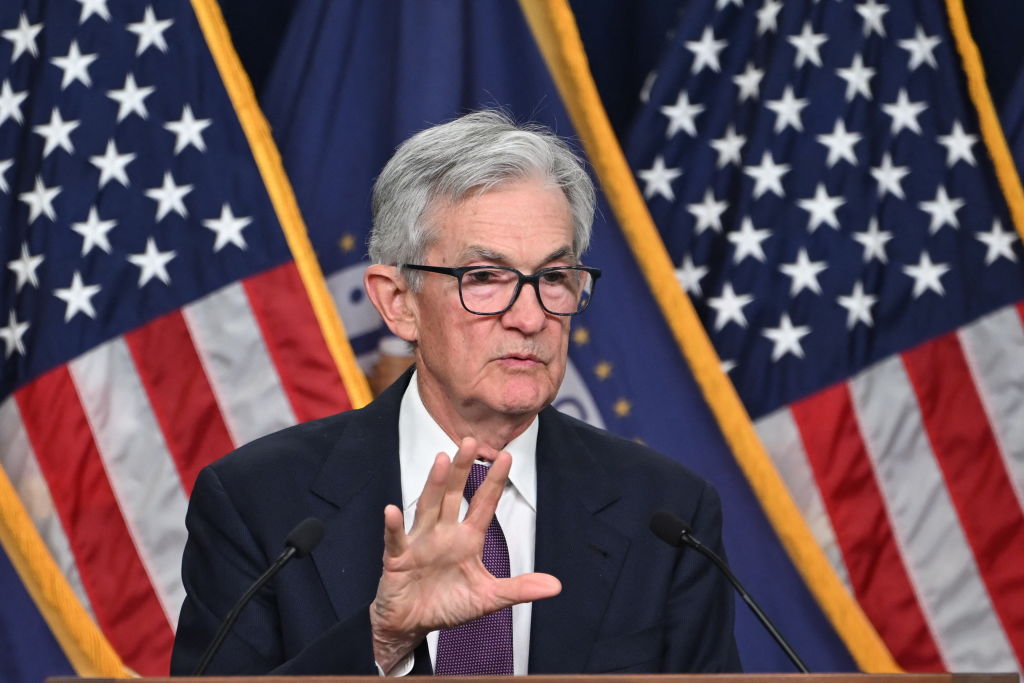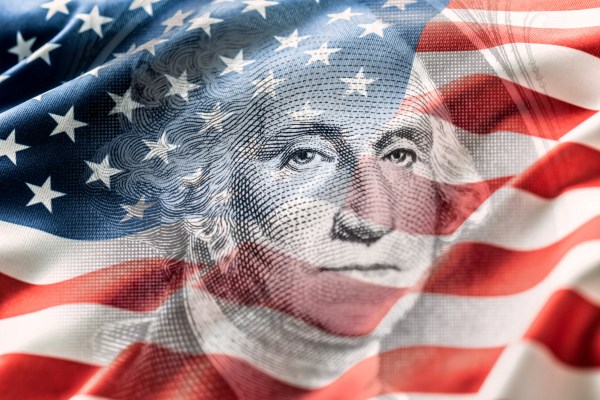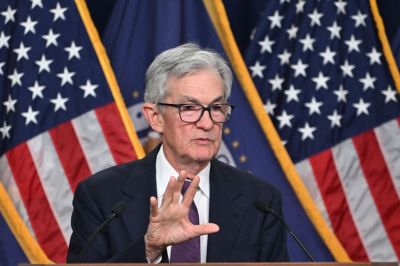Happy Thursday! If you’ve missed those holiday ship-by deadlines, don’t worry. There’s still plenty of time to give a loved one the gift of a Dispatch membership—no shipping or handling required.
Quick Hits: Today’s Top Stories
- The Kurdish-led Syrian Democratic Forces (SDF) clashed with a Turkish-backed militia in northern Syria on Wednesday, threatening a U.S.-brokered ceasefire agreement covering the area around the northeastern city of Manbij that was extended to the end of the week. The SDF battled the militia on Tuesday and Wednesday near the city of Kobani, a Kurdish-majority city along the border with Turkey and approximately 37 miles north of Manbij.
- Israel’s military said it had intercepted a missile fired at the country by the Houthis, an Iranian-backed militia in Yemen, after the incoming projectile triggered air raid sirens in and around the central city of Tel Aviv early Thursday morning. Hours later, the Israeli air force carried out strikes against Houthi infrastructure across Yemen in response, hitting targets near the capital of Sa’ana and the Red Sea port of Al Hudaydah. “I warn the leaders of the Houthi terrorist organization: Israel’s long hand will reach you as well,” Israeli Defense Minister Israel Katz said Thursday.
- The Russian military is moving advanced weapons, including air defense systems, from bases in Syria to bases in Libya, the Wall Street Journal reported Wednesday. The transfer, which includes radars for S-400 and S-300 anti-air systems, comes as the Russian military is evacuating most of its forces from Syria following the fall of dictator Bashar al-Assad. The Libyan bases reportedly receiving the equipment are located in territory controlled by Khalifa Haftar, the Russian-backed strongman who opposes the U.N.-backed government in Tripoli.
- Two Malaysian men were repatriated by the U.S. on Wednesday to their home country from the military prison in Guantánamo Bay. The men, Mohammed Farik bin Amin and Mohammed Nazir bin Lep, were transferred to a Malaysian prison after pleading guilty to charges related to a 2002 terrorist bombing in Bali and agreeing to testify against Encep Nurjaman, who allegedly led the plot to plant two bombs that killed 202 people. On Tuesday, a Kenyan man, Mohammed Abdul Malik Bajabu, was returned to Kenya after being held for 17 years without charge, leaving 15 out of the 27 remaining inmates eligible for transfer having never been charged.
- The Federal Reserve cut interest rates Wednesday by a quarter of a point—the third rate cut this year—bringing the federal funds rate down a whole percentage point from the summer. Officials also projected that they would make only two quarter-point rate cuts in 2025, down from the four cuts predicted in their September projections. The central bank now sees inflation staying above its 2 percent target until 2027. “Inflation has made progress toward the Committee’s 2 percent objective but remains somewhat elevated,” the Federal Open Market Committee said in its policy statement.
- The Supreme Court on Wednesday agreed to hear TikTok’s challenge to legislation that could ban the popular streaming app’s use in the United States. The court scheduled oral arguments for January 10. TikTok filed an emergency appeal on Monday requesting a pause on the law’s enforcement, which is currently set to begin on January 19, but the Supreme Court said in its order the request is “deferred pending oral argument.”
- The House Ethics Committee secretly voted earlier this month to release its report on an ethics investigation into former Rep. Matt Gaetz, a Republican from Florida, according to unnamed sources cited by CNN. The report will reportedly be released after Congress has finished up its votes this week. In November, the committee voted along party lines not to release the report, which was prompted by allegations that Gaetz had used illegal drugs and paid for sex with underage girls.
A Cautious Cut

Economists and financial analysts listened carefully to Federal Reserve Chair Jerome Powell’s press conference Wednesday afternoon. The central bank leader’s words help set market expectations about future interest rates, and after yesterday’s Fed meeting, he signaled that the latest rate cut was a closer call than observers had anticipated.
But for us, the most unexpected new information concerning Powell came in an unconfirmed report from New York Magazine Monday that he’s a fan of Alex Cooper, the host of the “Call Her Daddy” sex and relationships podcast. You never cease to surprise, Jay.
The Fed continued its walkdown of interest rates on Wednesday, but uncertainty looms over future monetary policy under the incoming administration as the central bank tries to wrangle the sticky “last mile” of inflation.
The Federal Open Market Committee (FOMC) cut the federal funds rates yesterday by 0.25 percent, or 25 basis points, lowering its target range to between 4.25 and 4.5 percent. The move marked the third cut since the central bank started lowering rates in September for the first time since the pandemic. Rates have now come down a full percentage point since this summer, but despite the easing, progress on lowering inflation appears to have stalled over the fall.
At the end of the summer, officials had hoped to see inflation continue to decline in the closing months of the year. “We’re not saying mission accomplished or anything like that,” Powell said at the September Fed meeting. “But I have to say, though, we’re encouraged by the progress that we have made.” In a November speech, St. Louis Fed President Alberto Musalem said “the FOMC’s dual mandate goals of maximum employment and price stability are within sight.”
But recent inflation data interrupted that narrative. The Bureau of Labor Statistics’ latest Consumer Price Index (CPI) report, which uses a basket of consumer goods and services to measure inflation, saw an increase of 0.3 percent in November and 2.7 percent over the last 12 months—up from 0.2 percent and 2.6 percent, respectively, in October. “Core” inflation, which excludes more volatile food and energy to reveal the stickiest price increases, came in at a 3.3 percent annual rate. Core inflation has been stuck at the same rate now for four consecutive months.
Meanwhile, the Personal Consumption Expenditures (PCE) price index—the Fed’s preferred measure of inflation—rose 2.3 percent annually in October and core PCE was 2.7 percent. Part of the story behind those numbers is the base effect—12-month rates being skewed by low inflation in the fourth quarter of 2023—but also persistent high housing costs and robust gross domestic product growth.
“I feel like an MMA fighter who keeps getting inflation in a choke hold, waiting for it to tap out yet it keeps slipping out of my grasp at the last minute,” Fed Governor Christopher Waller said earlier this month.
The stalled progress led the Fed to opt for what amounted to a somewhat cautious cut Wednesday. Rates were lowered as the futures market had predicted with 98 percent probability. But the central bank’s projections and Powell’s remarks following the meeting signaled a more hawkish posture. “Today was a closer call,” Powell said at a press conference after the meeting. “We’ve had a year-end projection for inflation, and it’s kind of fallen apart towards the end of the year.” The decision to cut even had a rare dissenter, Cleveland Fed President Beth Hammack, who thought the Fed should hold rates steady. She wasn’t alone among economic observers who hoped for a more bearish approach.
The FOMC’s updated Summary of Economic Projections—a document summarising how Fed officials see future inflation and economic performance shaking out—was even more revealing. The new predictions penciled in only two 25 basis point cuts in 2025, down from the four projected in the September updates. They also put core PCE inflation at 2.5 percent in 2025, a notable increase from the 2.2 percent projection in September. Now, inflation isn’t projected to hit the 2 percent target until 2027. “From here, it’s a new phase, and we’re going to be cautious about further cuts,” Powell said. Following his remarks, the major stock indices fell sharply.
But economic data isn’t the only factor the Fed is taking into account as it looks ahead to the new year. The incoming Trump administration’s plans for increasing tariffs and implementing mass deportations of undocumented immigrants are both likely to put upward pressure on inflation. There are some signs that the Trump team may not end up removing the millions of people the president-elect pledged to during the campaign, but the tariffs that Trump has described could quickly push prices higher on a range of goods. A Congressional Budget Office report released Wednesday estimated that if Trump imposed a uniform 10 percent tariff on all imported goods and an additional 50 percent tariff on all goods from China, then PCE inflation would increase 1 percent by 2026.
At least some Fed officials have begun anticipating those potential inflationary effects. “Some people did take a very preliminary step and start to incorporate highly conditional estimates of economic effects of policies into their forecasts at this meeting,” Powell said Wednesday. But the chair also tried to downplay the effect of uncertain future policies on the FOMC’s current decision-making. “There are just many, many factors that go into how much tariffs will even go into consumer inflation, how persistent will that be,” he explained, noting that the Fed can’t make true assessments until they’ve “actually seen what the policies are and how they’re implemented.”
The president-elect made fighting inflation a core issue of his campaign and promised that he’d return the country to an environment both of lower prices and lower interest rates. “I won on the border, and I won on groceries,” Trump said in an interview with NBC earlier this month. “We’re going to bring those prices way down.” Yet, in an interview with Time magazine last week, he seemed to hedge on that promise. “It’s hard to bring things down once they’re up,” he said. “It’s very hard.”
Powell and Trump have had a rocky relationship in the past and could clash over inflation when the former president returns to the White House in January. Trump has a penchant for trying to influence the Fed, and at various points, has floated the idea of trying to can Powell, whom he nominated as Fed chair in 2017. When asked about Powell earlier this month, Trump said doesn’t currently have plans to try to replace him. But his tune could change if he’s dissatisfied with a slower pace of rate cutting next year.
For now, the Fed isn’t trying to pick any fights with the new administration—Fed staff are reportedly avoiding discussing tariffs in emails or meetings for fear their comments could be interpreted as critical of Trump’s plans. With the uncertainty both about the direction of inflation and new economic policy, Powell emphasized that the Fed will proceed cautiously.
“When the path is uncertain, you go a little bit slower,” he said. “It’s not unlike driving on a foggy night or walking into a dark room full of furniture; you just slow down.”
Worth Your Time
- In Texas Monthly, Loren Steffy explored how Trump’s tariff regime could threaten the economy of the Lone Star State, a system built in large part on trade with Mexico: “For example, an electronic component of a vehicle may be manufactured in Texas, shipped to Mexico to be added into, say, a control board, and then shipped back to Texas for assembly into the finished product. Untangling those interconnections won’t be easy,” he argued. “But perhaps the most concerning aspect of Trump’s threats is that no one knows what exactly he might do. Business hates uncertainty. Leaders like to know they can trust rules and policies so that they can make investments that typically won’t pay off for years. But, given Trump’s mercurial decision-making style, the only certainty about economic policy for the next four years is that it’s going to be uncertain. That could foster an uncomfortable business climate for Texas companies, a higher cost of living for Texas consumers, and a sputtering end to the ‘Texas Miracle.’”
- Writing for the Wall Street Journal, Andriy Yermak—the head of the Office of the Ukrainian president—argued that the fall of Syrian dictator Bashar al-Assad’s regime is due in no small part to the efforts of Ukraine and the United States. “It’s a direct result of U.S. support for Ukraine in the face of Mr. Putin’s imperial overreach—and a strategic success for Washington and its allies,” he wrote. “With material support from the U.S., Ukraine has withstood the Russian military’s assault and drained Russia’s military and diplomatic resources. … The General Staff of the Armed Forces of Ukraine estimates that as of Nov. 1, about 700,000 Russian soldiers have been killed or wounded. The organization also estimates that Russia has lost 9,162 tanks, 18,470 armored vehicles, 28 warships and one submarine. Sanctions imposed on Russia have helped push inflation above 9%, raising the risk of mass bankruptcies throughout the Russian economy. With his military and economy degraded and his attention fixed on Ukraine, Mr. Putin had no choice but to let Syria’s Assad regime fall.”
Presented Without Comment
Barron’s: Trump Demands Lawmakers Rip Up House Speaker’s Compromise Spending Bill
Also Presented Without Comment
Axios: 41% of Young Voters Say UnitedHealthcare CEO Killing “Acceptable”: Poll
Most voters (68%) think the actions of the killer against [Brian] Thompson were unacceptable, while 17% found them acceptable, an Emerson College poll out this week found.
Young voters were far more split: 41% found the killer's actions acceptable, while 40% found them unacceptable, per the poll. About 24% found them "somewhat acceptable" and 17% "completely acceptable.
In the Zeitgeist
For the foodies out there, the New York Times asked its food writers what the best thing they ate in 2024 was. The collected dishes represent a scrumptious smorgasbord of American culinary life that might have had us contemplating a career change if we hadn’t recently re-watched “The Bear.”
https://youtu.be/11Wxhva4u_s?feature=shared
Toeing the Company Line
- In the newsletters: Scott Lincicome critiqued (🔒) the abuse of the “national security” excuse to justify protectionist policy, Jonah Goldberg reminded of the dangers from immanentizing the eschaton, and Nick Catoggio argued (🔒) the vaccine skepticism surrounding the incoming administration is a canary in the coal mine when it comes to degrading social trust.
- On the podcasts: David French and Sarah Isgur are joined by David Lat on Advisory Opinions to discuss the TikTok case and Lat’s reporting on the leak about the next Federalist Society President. And on today’s Remnant, Jonah Goldberg and Musa al-Gharbi dissect the latest Great Awokening.
- On the site: Charlotte Lawson explores the prospects for the Kurds now that militias supported by Turkey have overthrown Assad and Trump is returning to power and Jessica Trisko Darden unpacks the challenges of incorporating women into combat roles in the military.
Let Us Know
What’s the best thing you had to eat in 2024?






Please note that we at The Dispatch hold ourselves, our work, and our commenters to a higher standard than other places on the internet. We welcome comments that foster genuine debate or discussion—including comments critical of us or our work—but responses that include ad hominem attacks on fellow Dispatch members or are intended to stoke fear and anger may be moderated.
With your membership, you only have the ability to comment on The Morning Dispatch articles. Consider upgrading to join the conversation everywhere.